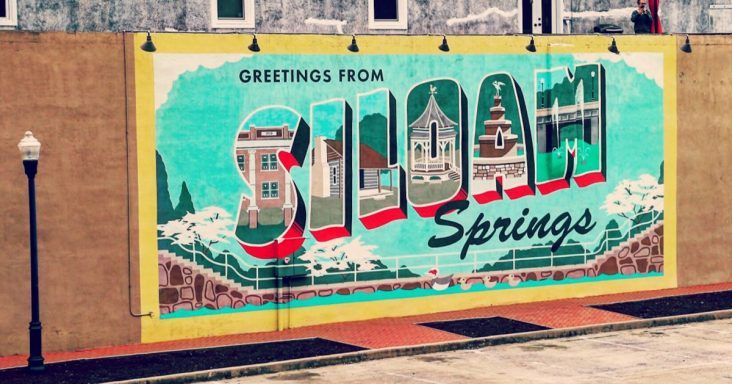Siloam Springs earns 2nd low-risk designation for bio-economy project investment
by October 19, 2021 12:35 pm 1,026 views

Siloam Springs is the first U.S. city and the second in North America to receive a Bioeconomy Development Opportunity Zone designation, according to a news release. The city earned an ‘A’ rating for poultry litter supply that’s expected to contribute to new market development for bio-economy projects using the more than 1.5 million tons of poultry litter produced in the region annually.
“The city of Siloam Springs became interested in the BDO Zone designation to potentially attract investments in new, green technologies in our community and improve the environment,” said City Administrator Phillip Patterson. “The BDO Zone designation is an additional tool in the city’s economic development toolbox. The ‘A’ BDO Zone rating signifies to the biomass investment and development community that there is abundant feedstock and efficient infrastructure to support investment in a bioeconomic project and reduces the risk of such investments.
“In addition, our region’s poultry industries have been implementing successful nutrient reduction strategies for a number of years, and the development of a biomass project will provide those industries with another valuable outlet for the by-product, which will, in turn, reduce nutrient runoff to our waterways from the land application of the poultry litter.”
Over the next four years, The Bioeconomy Development Opportunity Zone Initiative is expected to award a BDO Zone designation to 1,000 economically distressed communities. The organization’s goals are to accelerate biobased investment, decrease greenhouse gas emissions and create jobs in economically disadvantaged communities across the United States by minimizing development risk for new biobased manufacturing plants in low-income rural and urban areas.
According to the organization, the total economic impact potential of BDO Zone designations is estimated at 160,500 jobs and more than $16 billion annually in economic benefits. The total annual reduction in greenhouse gas emissions is estimated at 2.59% of overall net emissions for the United States. This is equivalent to removing 32.6 million vehicles from the road or 11.8% of all U.S. passenger cars. The addition of a renewable chemical, sustainable aviation or ground transportation fuel or other biobased plant is expected to provide an average of 321 jobs and more than $29 million annually to an area economy and reduce greenhouse gas emissions by 300,000 metric tons annually.
The ‘A’ and ‘AA’ BDO Zone ratings identify the best areas for low-risk bio-economy project development, the release shows. Communities that receive a BDO Zone rating undergo a due diligence process to rate supply chain risk using a framework of more than 100 standard, transparent and validated risk indicators based on the Biomass Supply Chain Risk Standards. The new standards were developed over the past six years for investors and capital markets by the U.S. Department of Energy’s Idaho National Lab, Los Alamos National Lab and Ecostrat, along with a stakeholder group of several hundred bio-economy investors, plant operators, feedstock and equipment suppliers, government and academia, with funding from the Department of Energy’s Bioenergy Technologies Office, the Canadian federal government and the Standards Council of Canada.
“The bottom line is that BDO Zone designations solve a big problem for communities, which is that many of them have strong biobased assets: tremendous surpluses of biomass, reliable suppliers and good infrastructure to support an operating plant, but they don’t have the budget, the platform or the credibility to communicate this to biobased investors and developers around the world,” said Ecostrat CEO Jordan Solomon. “A BDO Zone designation changes all that.”
According to the release, Siloam Springs also has a Federal Opportunity Zone on the northeast side of the city where eligible new investments can take advantage of preferential tax benefits.
“Through the BDO designation, Siloam Springs is using an innovative and sustainable approach to leverage the value of its Opportunity Zone and of the assets generated in the region for community and economic development,” said Michelle Perez, program officer at Winrock International. “Winrock International, through our Opportunity Arkansas project, is excited to continue working with Siloam Springs to develop investable projects that revitalize the local community.”
Also, the release shows the Arkansas Opportunity Zone Fund can provide tax incentives for eligible projects located within the zone.
“We are excited to work with Ecostrat on the BDO Zone initiative to create clean jobs, bring economic development to distressed communities and make an impact on climate change,” said Nick Andrews, CEO of USA BioEnergy and Arkansas Opportunity Zone Fund.
In November, the city of Melville in Saskatchewan, Canada, became the first city in North America to receive the BDO Zone designation. Other BDO Zone designations in progress include Arlington, Ore., and Barnwell County, S.C.
